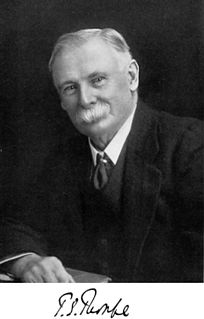A Quote by Sallust
Of the bodies in the cosmos, some imitate mind and move in orbits; some imitate soul and move in a straight line, fire and air upward, earth and water downward.
Related Quotes
For the elements have the property of moving back to their place in a straight line, but they have no properties which would cause them to remain where they are, or to move otherwise than in a straight line. The rectilinear motions of these four elements when returning to their original place are of two kinds, either centrifugal, viz., the motion of the air and the fire; or centripedal, viz., the motion of the earth, and the water; and when the elements have reached their original place, they remain at rest.
It is possible in theory and I think true in practice that centralization could have been the optimal solution at the beginning of the computer era and now, but not in between. And it may change back again with some other technological development. Some things move in a straight line. Others move like a pendulum.
It is clear, then, that the earth must be at the centre and immovable, not only for the reasons already given, but also because heavy bodies forcibly thrown quite straight upward return to the point from which they started, even if they are thrown to an infinite distance. From these considerations then it is clear that the earth does not move and does not lie elsewhere than at the centre.
A rock or stone is not a subject that, of itself, may interest a philosopher to study; but, when he comes to see the necessity of those hard bodies, in the constitution of this earth, or for the permanency of the land on which we dwell, and when he finds that there are means wisely provided for the renovation of this necessary decaying part, as well as that of every other, he then, with pleasure, contemplates this manifestation of design, and thus connects the mineral system of this earth with that by which the heavenly bodies are made to move perpetually in their orbits.
The characteristic of the first sort of religion is imitation. It insists on imitation: imitate Buddha, imitate Christ, imitate Mahavir, but imitate. Imitate somebody. Don`t be yourself, be somebody else. And if you are very stubborn you can force yourself to be somebody else. You will never be somebody else. Deep down you cannot be. You will remain yourself, but you can force so much that you almost start looking like somebody else.
[Henry Cavendish] fixed the weight of the earth; he established the proportions of the constituents of the air; he occupied himself with the quantitative study of the laws of heat; and lastly, he demonstrated the nature of water and determined its volumetric composition. Earth, air, fire, and water-each and all came within the range of his observations.
[On the propulsive force of rockets] One part of fire takes up as much space as ten parts of air, and one part of air takes up the space of ten parts of water, and one part of water as much as ten parts of earth. Now powder is earth, consisting of the four elementary principles, and when the sulfur conducts the fire into the dryest part of the powder, fire, and air increase ... the other elements also gird themselves for battle with each other and the rage of battle is changed by their heat and moisture into a strong wind.
Schools teach you to imitate. If you don't imitate what the teacher wants you get a bad grade. Here, in college, it was more sophisticated, of course; you were supposed to imitate the teacher in such a way as to convince the teacher you were not imitating, but taking the essence of the instruction and going ahead with it on your own. That got you A's. Originality on the other hand could get you anything -- from A to F. The whole grading system cautioned against it.








































